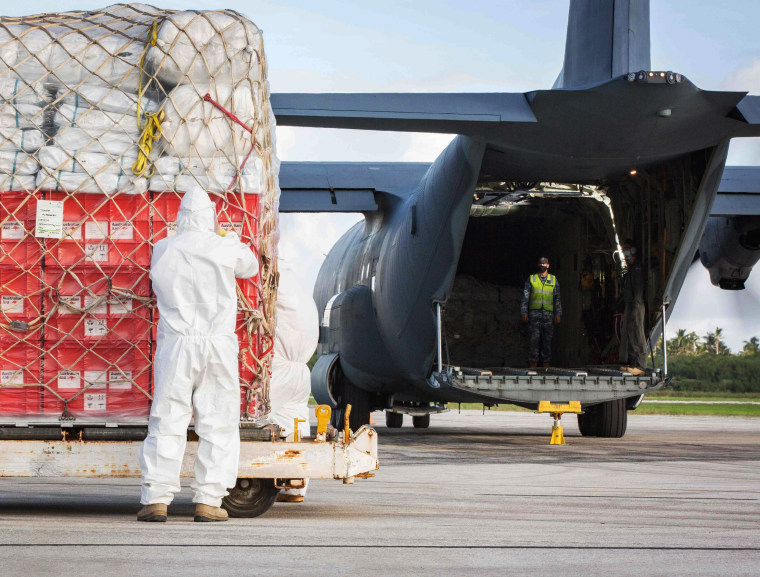As the international relief effort carries on for a still-reeling Tonga, 176 Asian American and Pacific Islander groups are urging President Joe Biden to do more.
After a volcanic eruption and tsunami killed at least three people and destroyed homes this month, the U.S. promised the small nation of islands $2.5 million in additional humanitarian aid. But Tongan American-led activists are calling for Biden to increase that amount, as well as to amp up efforts against the root issue of climate change.
“As Tonga is in its emergency response phase and continues to be extremely vulnerable to climate change, the road to recovery will be a long-term process to rebuild its infrastructure and restore hope in the Tongan people,” the coalition of groups wrote in a statement on Wednesday. “Food, water, personal protective equipment, and other essential necessities will be a continuous need in the coming months ahead.”
On Tuesday, U.S. Agency for International Development pledged to provide $100,000 more to Tonga for sanitation, disease prevention and food security, among other things.
The White House did not respond to NBC News’ request for comment.
Australian and British navy ships arrived in the country this week, delivering supplies like water, medical equipment and shelter materials. The drop-offs were completely contactless, after nearly two dozen cases of coronavirus were reported on the Australian ship. Tonga is currently reporting zero cases of Covid, and the country only had one case diagnosed since the beginning of the pandemic.
The Jan. 15 disaster decimated entire villages in much of the country, including schools, businesses and farmland, activists said. Those recovering also fear that water and air contamination could expose them to disease later on in life.
“There is no question that such devastating impacts are a result of climate change,” the statement said.
An underwater cable line damaged during the eruption has kept Tongan Americans from contacting their loved ones. Though some communication to the country has been restored, many family members abroad are still waiting for news of their relatives’ statuses. U.S. pandemic deaths and job loss have already strained overseas family contact, and the volcanic eruption and tsunami has worsened it.
“The Tongan American diaspora have important ties to their families in Tonga, as they work hard to send remittances quite frequently to support their families and essentially help to keep the economy afloat,” the statement said. “However, the pandemic has caused financial hardship for the diaspora here as many have lost family members to COVID-19, in addition to being frontline workers, taking care of their elders, and living in multigenerational households.”
Amid the worry, Tongan Americans say long-term action is necessary, not just in cleaning up after the current crisis, but in taking steps to prevent the next one.
“We urge your administration to release a statement to ease some of the fear and anxiety Tongan Americans are experiencing,” the advocacy groups wrote. “We stand ready to work with you and provide support from the Tongan American community.”

